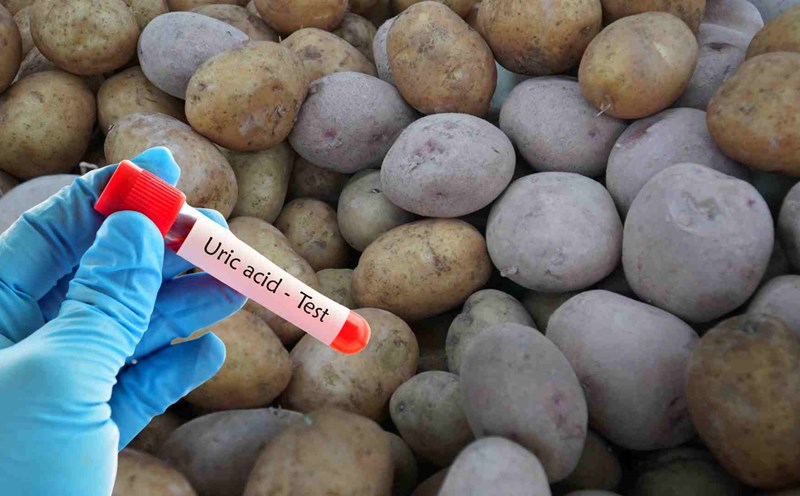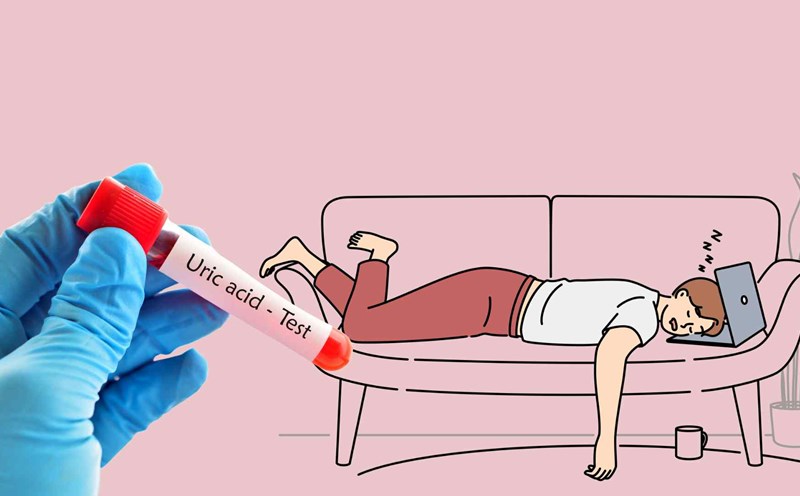According to research published in Arthritis & Rheumatology, uric acid levels in the blood fluctuate according to circadian rhythms and often reach the highest level at night. This is also the reason why many gout patients experience acute pain "in the dark" at midnight or early morning.
Uric acid is the final product of the breakdown of purines a substance found in foods such as red meat, seafood, and beer and is also produced in the body. Normally, uric acid will be filtered by the kidneys and excreted through urine. However, when this substance accumulates excessively, it can easily crystallize into urate salt, causing inflammation, swelling and severe pain in the joints.
Reasons for uric acid increase at night
First, when you sleep, your body temperature drops, especially in the limbs like your feet, making uric acid more likely to crystallize into crystals. This explains why gout often starts in the big toe joint.
Second, the breathing slows down, increasing the amount of CO2 in the blood, leading to mild flatulence. This acidic environment creates conditions for urate salt to deposit more in the joints.
Third, mild dehydration while sleeping also contributes. After 68 hours of not taking more water, the blood became thick, the kidneys filtered less, causing uric acid levels in the blood to increase.
According to the Arthritis Foundation (USA), the combination of the three factors above drop temperature, changing blood pH and dehydration is a trap that makes gout more likely to break out at night.
Preventive solutions
Experts recommend that patients at high risk should:
Drink enough water throughout the day and before bed to reduce uric acid levels.
Keeping the body warm, especially the feet, helps limit urate crystallization.
Eat light dinner, limit foods rich in purines such as organs, seafood, and beer.
Maintain a reasonable weight and move gently to increase blood circulation.











